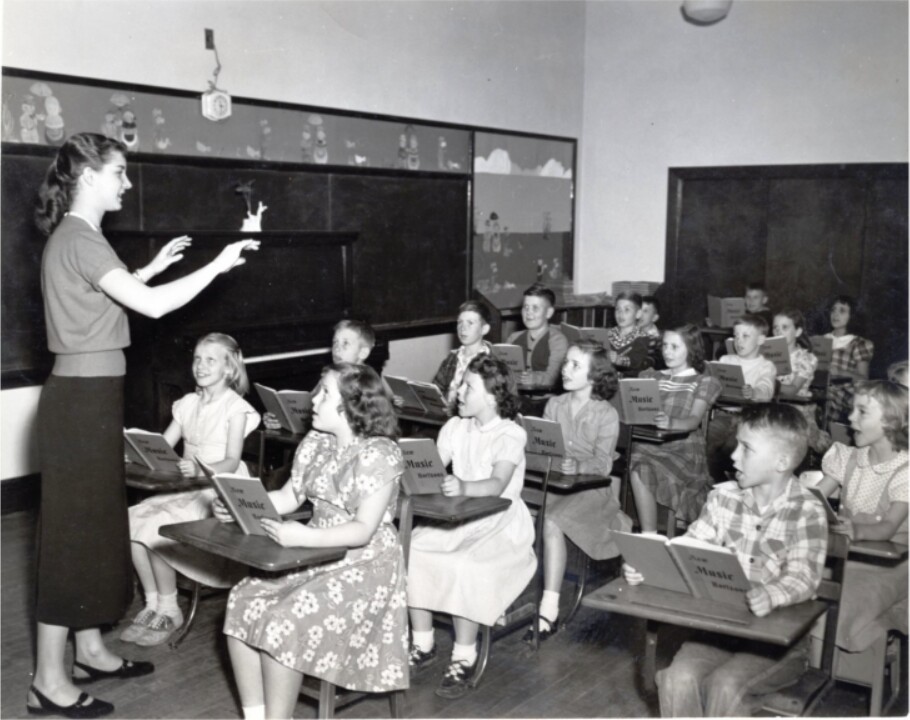In seventh and eighth grade, we have music class twice a week. The class is divided into two groups for tonal management of the parts we sing. There is an alto group, mostly boys, and a soprano group, girls and boys like myself whose voice hasn’t changed yet. Before each song, Miss Barnett blows a single note on her pitch pipe so we know what we’re supposed to sound like.

When not accompanying us on the classroom piano, Miss Barnett spends her time correcting and verbally abusing the sopranos. We can do nothing to her satisfaction. After a few weeks, I tell her my voice is changing. There is no test to confirm my claim; she simply tells me to sit on the alto side of the room from now on. Goodbye to twice-weekly stomach cramps.
Our repertoire comes from a long-out-of-print song book of standards, spirituals and other royalty-free music, for example “Comin’ ‘round the Mountain”. Music is timeless, and our thrifty school board agrees.
One song in regular rotation is Stephen Foster’s “Old Black Joe”. It has of course been modernized since then, but in our classroom Old Black Joe grieves for “my friends from the cotton fields away”, with the chorus
I’m coming, I’m coming, for my head is bending low,
I hear those darky voices calling “Old Black Joe”.
In our class are two black kids, Joe Stokes and Richie Strickland. I don’t look over to see if they are singing along, but I’ll bet Joe Stokes isn’t.
Richie and I are friendly, and one day he arrives at my house with two fishing poles and we board the Number 20 bus to Branch Brook Park. As we pay our fares, I notice some of the other passengers nudge each other.
We try various spots around the lake but don’t catch anything. We come back to my house and sit in the sunroom, talking about baseball. After an hour or so, my grandmother takes me aside and says “Tell Richie he has to go home, we’re going to have dinner now.”
